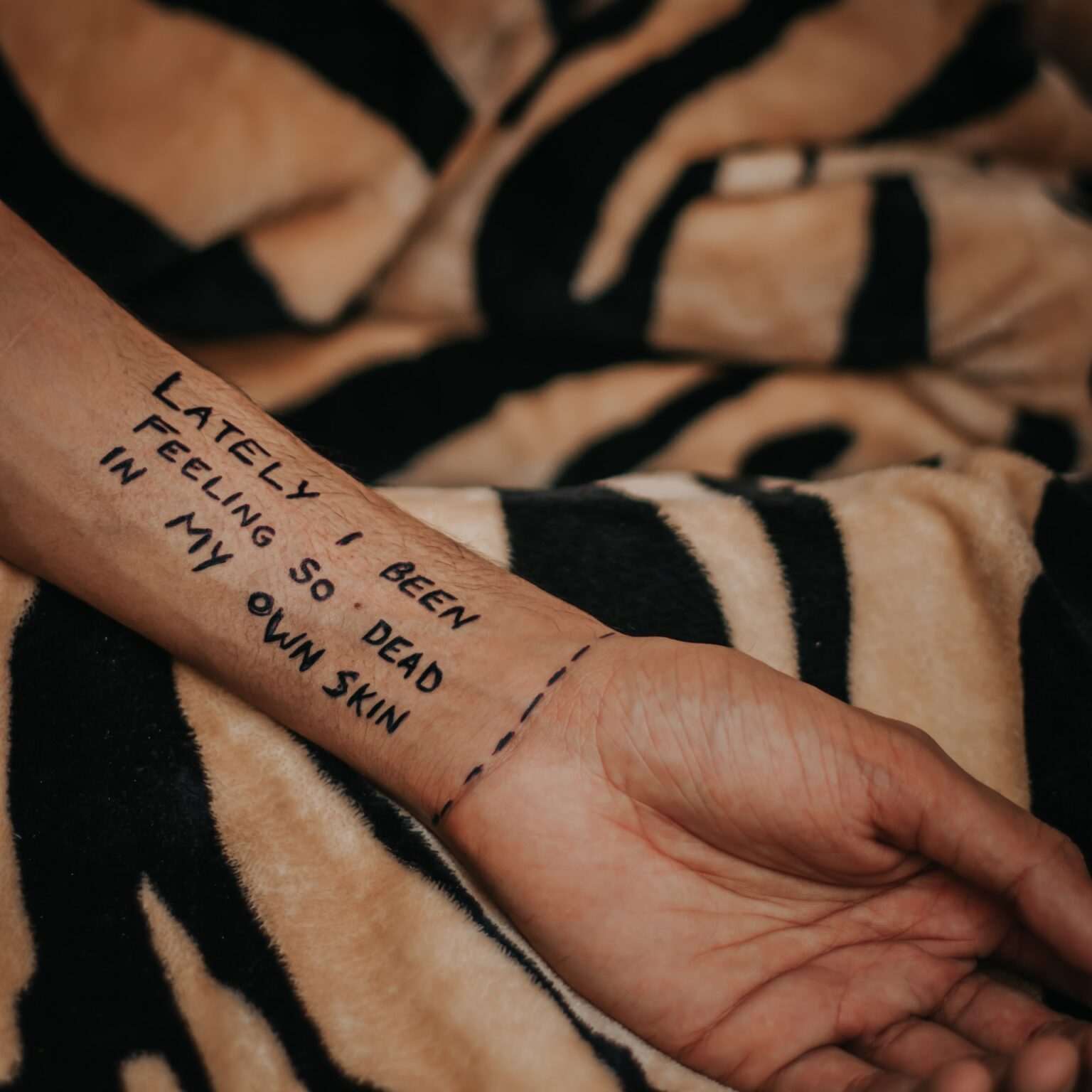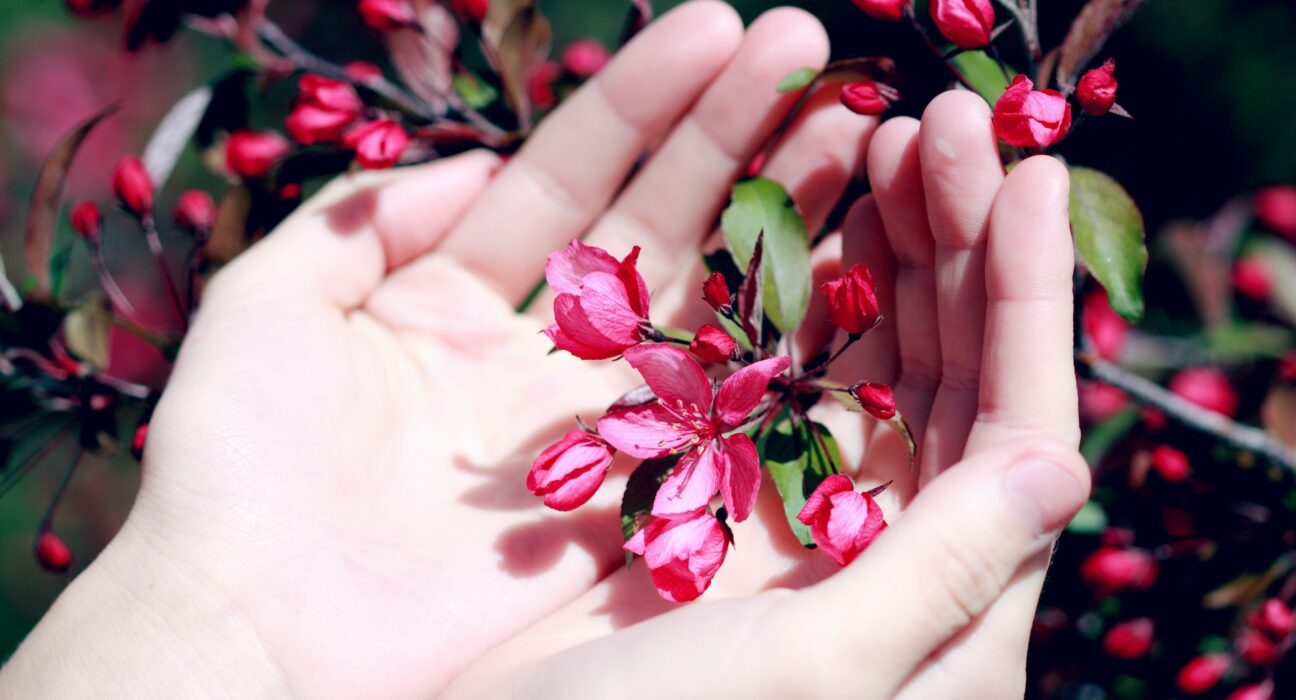Positive affirmations, such as ‘love,’ ‘self-love,’ and ‘breathe,’ have become popular choices for individuals marking milestones in their mental health journeys. People often select mental health tattoo designs that inspire bravery, such as lion faces, or creatures they fear, like snakes or spiders, as a reminder to confront their fears.
Some individuals also choose to depict their ‘spirit animal’ as a source of guidance and strength.
When considering a mental health tattoo, it’s advisable to take time for reflection. Keeping the stencil on and sleeping on the decision can help ensure that the chosen design aligns with personal intentions and emotions.

If uncertainty persists after the initial excitement fades, it may be best to postpone the tattoo for a more appropriate time.
Exploring the Trend of Mental Health Tattoos
In recent years, the phenomenon of mental health tattoos has taken the world by storm. Individuals across different countries are adorning their bodies with meaningful ink as a powerful testament to their emotional journeys. The health tattoos have become a symbolic expression of resilience, healing, and personal growth. Let’s delve into the significance of these trendy tattoos, their global popularity, and the stories they tell.
Unveiling the Meaning Behind Mental Health Tattoos
The health tattoos serve as artistic reminders of personal triumphs, struggles, and the indomitable spirit of individuals. These tattoos often hold deep emotional significance and act as a visual representation of one’s mental health journey.
Each design encapsulates unique stories, allowing wearers to embrace their experiences and inspire others.
The Rise of Mental Tattoos on a Global Scale
The popularity of mental health tattoos knows no boundaries, transcending cultural barriers and spreading across the globe. Different countries have embraced this trend, with unique variations and symbols reflecting their respective cultures and values.

Let’s explore how these tattoos have gained prominence in various regions.
Symbolism and Trends in Mental Health Tattoos
- Rising from the Ashes: The Phoenix Tattoo
The phoenix tattoo is a prominent symbol within the mental health tattoo realm. Representing rebirth and resilience, this mythical bird rising from the ashes embodies the strength and ability to overcome adversity.
It serves as a reminder that even in our darkest moments, we possess the power to emerge stronger.
- Semicolon: A Journey Continues
One of the most recognized mental health symbols is the semicolon tattoo. Inspired by literature, where a semicolon signifies choosing not to end a sentence, this tattoo represents the choice to continue one’s life journey, particularly after grappling with mental health challenges.
It embodies hope, perseverance, and the will to keep writing one’s story.
- Lotus Flower: Rising Above Challenges
The lotus flower, deeply rooted in spiritual symbolism, is another popular choice for tattoos. Despite growing in muddy waters, the lotus emerges pristine and beautiful.
This delicate bloom represents the ability to rise above challenges, find inner peace, and flourish amidst adversity.
- Anchors of Stability: Steadfastness Amidst Turmoil
Anchors have become synonymous with stability and strength. In the context of tattoos, they symbolize grounding and resilience during turbulent times.
People often choose anchor tattoos to remind themselves of their ability to weather storms and remain steadfast in the face of mental health struggles.
Cultural Perspectives on Mental Health Tattoos
- United States: Empowering Self-Expression
In the United States, mental health tattoos have become a powerful vehicle for self-expression and destigmatization. Individuals share their stories openly, using tattoos to reclaim their narratives and foster conversations about mental health. From celebrities to everyday individuals, these tattoos serve as beacons of hope and empowerment.
- Japan: Embracing Serenity and Mindfulness
In Japan, tattoos often reflect the country’s emphasis on serenity and mindfulness. Designs incorporating elements such as cherry blossoms, koi fish, or Zen symbols embody the pursuit of inner peace and the practice of being present in the moment. These tattoos are not only aesthetically pleasing but also promote a deep sense of calm.
- Australia: Indigenous Wisdom and Connection to Land
Australia’s rich Indigenous culture influences health tattoos in profound ways. Symbolic representations of Dreamtime stories, totems, and ancestral wisdom merge with modern mental health symbols. These tattoos celebrate the interconnectedness of individuals with the land, honoring the healing power of nature and heritage.
- Nordic Countries: Embracing Norse Mythology and Resilience
Nordic countries infuse their health tattoos with elements of Norse mythology, weaving ancient tales of gods and heroes into symbols of resilience and inner strength. Designs featuring the mighty tree Yggdrasil, associated with the concept of life’s interconnectedness, are particularly popular. These tattoos serve as reminders of overcoming adversity and embracing one’s innate power.
The Healing Power of Mental Health Tattoos
These tattoos offer a therapeutic and empowering experience for individuals seeking to heal and reclaim their narratives. The act of getting tattooed becomes a cathartic journey, allowing individuals to express emotions, commemorate milestones, and find solace in shared stories.

Through these tattoos, people transform scars into art, traumas into triumphs, and pain into resilience. Mental health tattoos become a visual testament to the wearers’ personal growth, a constant reminder of their strength, and an inspiration for others facing similar battles.
Embracing the Trend, Celebrating Resilience
The rise of health tattoos symbolizes a growing global movement toward destigmatizing mental health, promoting self-care, and embracing the power of storytelling. These tattoos not only beautify the skin but also embody personal narratives of survival, resilience, and hope.
As mental health conversations continue to evolve, depression tattoos remain a powerful way to express and celebrate the human spirit. They offer a beacon of light, reminding us that we are not alone in our struggles and that our stories matter.
So, whether it’s a phoenix rising from the ashes or a lotus flower blossoming amidst adversity, these tattoos encapsulate the essence of the human experience—the triumph over adversity and the unwavering strength of the human spirit.
Let these tattoos be a reminder that healing is possible and that by sharing our stories, we create a world where mental health is embraced and celebrated.
Best Places to Get Depression Mental Health Tattoos
| Place | Location | Description |
| Serenity Ink | Los Angeles, CA | Renowned for exceptional artists specializing in tattoos. Tranquil atmosphere and compassionate staff. |
| Soulful Strokes | London, UK | Dedicated to providing a safe space for individuals to express their emotional journeys through art. Attention to detail and powerful designs. |
| Tranquil Artistry | Melbourne, Australia | A haven for those seeking depression tattoos. Custom designs reflecting unique narratives. Cathartic and empowering experience. |
| Zen Ink | Tokyo, Japan | Offers a serene and meditative space for depression tattoos. Blends traditional Japanese art with emotional depth. |
| Norse Haven | Stockholm, Sweden | Specializes in Norse mythology-inspired designs. Merges ancient symbolism with contemporary mental health narratives. |
Best Parts on the Body to Get Depression Mental Health Tattoos
| Placement | Description |
| Wrist | The wrist is a popular choice for depression mental health tattoos due to its visibility and accessibility. It serves as a constant reminder of your journey towards mental well-being. |
| Forearm | The forearm offers a larger canvas for more intricate designs. This area allows for meaningful symbols and inspirational quotes that reflect your battle with depression. |
| Shoulder | The shoulder provides a discreet placement option. It allows for easy concealment while still providing a personal reminder of your resilience and strength. |
| Chest | The chest offers an intimate placement close to the heart, symbolizing inner strength and emotional healing. It allows for larger designs that represent your journey towards well-being. |
| Back | The back provides a vast canvas for elaborate designs. It represents transformation and growth, serving as a visually stunning embodiment of your journey towards mental well-being. |
| Ankle | The ankle offers a discreet yet meaningful placement. It can accommodate small symbols or words that serve as a personal reminder of strength and resilience. |
| Inner Bicep | The inner bicep is a less commonly chosen but impactful location. It provides a more private and personal reminder of your battle with depression. |
Why is it worth getting depressing tattoos?
Getting depressing tattoos, or mental health tattoos, can hold significant value and be worth considering for several reasons:
Expression and catharsis: Tattoos can serve as a form of self-expression and a way to externalize internal emotions. By getting a depressing tattoo, individuals can convey their struggles, experiences, and emotions associated with depression.
It can provide a cathartic outlet for expressing complex feelings that may be challenging to articulate verbally.
Symbolic representation: Depressing tattoos can be powerful symbols of personal journeys and resilience. They can represent the strength and courage it takes to battle depression.
These tattoos can serve as constant reminders of the progress made, the lessons learned, and the determination to overcome challenges. They act as visual markers of personal growth and transformation.
Empowerment and motivation: Depressing tattoos can serve as sources of empowerment and motivation. They can remind individuals of their inner strength and the capacity to endure and overcome difficult times.
These tattoos can provide a boost of confidence, encouragement, and inspiration during moments of self-doubt or when facing new challenges.
Community and solidarity: The health tattoos can also foster a sense of community and solidarity among individuals who have faced similar struggles. They can serve as conversation starters, allowing people to connect and share their experiences.
Such tattoos can create a supportive network where individuals feel understood, validated, and encouraged by others who have walked a similar path.
Visibility and awareness: Depressing tattoos can be visible to others, allowing for meaningful conversations and raising awareness about mental health issues. They can spark discussions, challenge stigmas, and contribute to a broader dialogue surrounding mental health.
These tattoos can serve as a way to educate and promote understanding among those who may not have firsthand experience with depression.
It’s important to note that getting a depressing tattoo is a personal decision, and it may not be suitable for everyone.
It’s crucial to carefully consider the potential long-term implications and ensure the design and meaning align with your own experiences and journey.
Additionally, seeking the expertise of a skilled tattoo artist who understands the significance of mental health tattoos can help ensure the final result is both visually appealing and emotionally meaningful.
FAQs-Mental Health Tattoos
Q. What is the meaning behind a semicolon tattoo?
A. A semicolon tattoo represents the choice to continue life’s journey instead of ending it. It symbolizes hope, resilience, and solidarity with those facing mental health challenges.
Q. Why is the lotus flower a popular symbol for depression tattoos?
A. The lotus flower symbolizes growth and beauty emerging from difficult or muddy situations. It resonates with individuals who have overcome struggles and found strength in their battle against depression.
Q. What does the phoenix tattoo signify in relation to mental health?
A. The phoenix tattoo represents rebirth and rising from adversity. It symbolizes the ability to overcome challenges, heal, and start anew—a powerful reminder for individuals dealing with depression.
Q. Why are mandala tattoos significant for individuals with depression?
A. Mandalas symbolize balance, unity, and harmony. They can serve as a reminder for individuals to find inner peace, embrace mindfulness, and seek equilibrium amid the ups and downs of mental health challenges.
Q. What does a broken or stitched heart tattoo represent in relation to depression?
A. A broken or stitched heart tattoo symbolizes the pain and healing process associated with depression. It signifies the journey of emotional wounds, resilience, and the strength required to mend and recover.
Q. Why are quotes and inspirational words popular in depression tattoos?
A. Quotes and inspirational words provide a source of motivation, encouragement, and support during difficult times. They can serve as personal mantras, affirmations, or reminders of one’s resilience and determination to overcome depression.
Q. Are there specific cultural or religious symbols used in depression tattoos?
A. Yes, individuals from various cultural and religious backgrounds may incorporate symbols specific to their heritage. Examples include Om (Hinduism), Yin and Yang (Taoism), or Hamsa (Middle Eastern cultures) to represent mental health and well-being.
Q. Can depression tattoos help raise awareness about mental health?
Yes, depression tattoos can be a way to spark conversations and raise awareness about mental health. They provide an opportunity to share personal stories, challenge stigmas, and promote understanding within communities.
A. How do I choose the right depression tattoo for myself?
Choosing the right depression tattoo involves deep personal reflection. Consider symbols or designs that resonate with your journey, inspire you, and hold personal meaning.
Q. Are there any precautions to take before getting a depression tattoo?
A. It’s important to ensure you are in a stable emotional state before getting a depression tattoo. Take time to research and find a reputable tattoo artist who can understand and execute your vision effectively.




Leave feedback about this